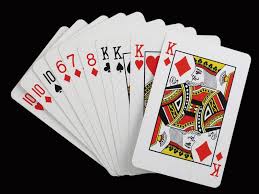How To Learn Rummy, Rummy is a classic card game enjoyed by millions around the world. With its blend of strategy, skill, and luck, rummy offers a rewarding experience for players of all levels. If you’re new to the game or looking to refine your skills, this guide provides a comprehensive overview of how to learn rummy, from understanding the basics to mastering advanced strategies.
Understanding the Basics of Rummy
1. What is Rummy?
Rummy is a group of matching-card games where the primary goal is to form sets or sequences of cards. The game is played with a standard 52-card deck, although variations may use additional decks or jokers. Players aim to arrange their cards into valid combinations before their opponents do.
2. The Objective
In rummy, the objective is to meld all your cards into valid combinations:
- Sets: Three or four cards of the same rank but different suits (e.g., 7♠ 7♦ 7♣).
- Sequences: Three or more consecutive cards of the same suit (e.g., 4♠ 5♠ 6♠).
3. Basic Rules
While rules can vary depending on the version of rummy being played, the basic gameplay involves:
- Dealing: Each player is dealt a specific number of cards (usually 10 cards for two players or 7 for more). The remaining cards form the draw pile.
- Gameplay: Players take turns drawing a card from the draw pile or the discard pile, then discarding one card. The aim is to form valid combinations and eventually declare (or “meld”) your hand.
- Melding: To win, you need to arrange all your cards into valid sets and/or sequences and declare your hand. The game ends when a player successfully melds all their cards.
Step-by-Step Guide to Learning Rummy
1. Learn the Card Combinations
Start by practicing how to form basic sets and sequences. Familiarize yourself with how cards can be grouped into valid combinations:
- Sets: Understand how to group cards of the same rank across different suits.
- Sequences: Learn how to arrange cards in consecutive order within the same suit.
2. Understand the Gameplay
Grasp the fundamental gameplay mechanics:
- Drawing and Discarding: Learn the process of drawing cards from the pile or the discard stack and strategically discarding cards that do not help in forming combinations.
- Forming Combinations: Practice creating sets and sequences from the cards you draw and hold.
3. Develop Basic Strategies
Effective strategies are crucial for success in rummy:
- Card Management: Keep track of the cards you draw and discard. This helps in understanding what combinations are likely to be completed and which cards are less useful.
- Discarding Wisely: Avoid discarding cards that could help your opponents. Opt for cards that are less likely to be used by others.
- Observing Opponents: Pay attention to your opponents’ moves to infer their strategy and adjust your gameplay accordingly.
4. Explore Variations of Rummy
Rummy has several popular variations. Learning different versions can enhance your overall understanding of the game:
- Indian Rummy: Played with two decks and involves forming at least one pure sequence.
- Gin Rummy: A two-player version focusing on forming sets and sequences and knocking early to end the game.
- Kalooki (Kaluki): Often played with two decks and jokers, requiring players to form sets and sequences with more complexity.
5. Practice Regularly
Practice is essential to mastering rummy. Play regularly with friends, family, or online platforms. Many online games offer tutorials and practice modes that can help you get familiar with the game and refine your skills.
6. Study Advanced Strategies
Once you’re comfortable with the basics, delve into advanced strategies:
- Probability and Odds: Understand the probabilities of drawing specific cards and use this knowledge to make informed decisions.
- Bluffing: Learn to bluff or mislead opponents about your hand to gain a strategic advantage.
- Card Counting: Develop the skill to keep track of which cards have been played and which are still in the deck.
7. Join a Community
Engage with rummy communities and forums to connect with other players, share strategies, and discuss gameplay. Online forums and social media groups often have valuable insights and tips from experienced players.
Conclusion
Learning rummy involves understanding the basic rules, practicing card combinations, and developing effective strategies. By mastering these elements and exploring different variations, you can enhance your gameplay and enjoy the classic card game to the fullest. Whether you’re playing casually with friends or aiming for competitive success, the journey to mastering rummy is both challenging and enjoyable. Dive into the game, practice regularly, and embrace the excitement of rummy!




